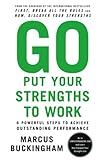I’ve never done something like this before, and am actually kind of hesitant. But some people that I respect do this on their blogs once in a while and I think it might be kind of fun, so I’m going to give it a try.
Here are the rules:
- Subscribe to the blog before the end of tomorrow (Wed, Oct 28).
- Contact me and tell me that you subscribed.
- If you are already a subscriber, mention this blog to some friends, contact me, and I’ll enter you into the drawing as well. (If you are a new subscriber, you can do this as well, and I’ll enter you twice.)
- I’ll draw 2 winners, email them back to ask them their address, and send them each 2 free books.
The two books will be:
1. The Three Signs of a Miserable Job: A Fable for Managers (And Their Employees) by Patrick Lencioni.
I picked this book because everyone can relate to a miserable job and Lencioni provides great points here on how to make your job (and, if you are a manager, those of your employees) more rewarding and fulfilling.
The first part of the book is a fictional story, and the second part lays out the concepts. This was the first Lencioni book that I read, and I found it very refreshing.
2. Go Put Your Strengths to Work: 6 Powerful Steps to Achieve Outstanding Performance by Marcus Buckingham.
As I’ve mentioned before, I’ve found Marcus Buckingham to be one of the most helpful and insightful business thinkers around. His focus is how to discover your strengths and base your role on them rather than on “fixing your weaknesses.” It is a revolutionary insight and has tons of implications outside of work as well.
Here’s the first part of the blurb for this book:
Beginning with the million-copy bestsellers First, Break All the Rules: What the World’s Greatest Managers Do Differently and Now, Discover Your Strengths, Marcus Buckingham jump-started the strengths movement that is now sweeping the work world, from business to government to education. Now that the movement is in full swing, Buckingham’s new book answers the ultimate question: How can you actually apply your strngths for maximum success at work?

